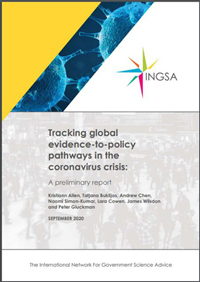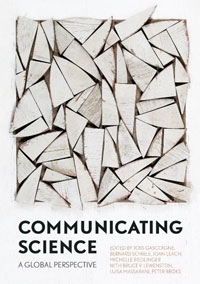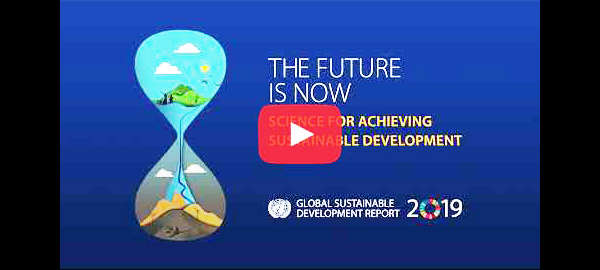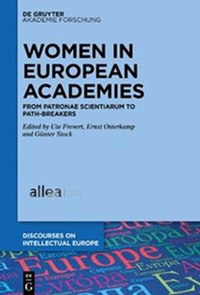
The Science Policy and Diplomacy Newsletter of the Australian Academy of Science highlights important science policy discussion and events in Australia and around the globe. We report on the involvement of science in national and international policy and diplomacy, and the Academy’s contributions to these discussions.
The Academy has produced this special edition of the Science Policy and Diplomacy Newsletter to showcase the organisations that operate in the science policy and diplomacy realm. This showcase has produced a list of resources that offer insight into the issues and discussions in science policy and diplomacy.
The Australian Academy of Science’s Annual Fellows’ Christmas Book and Podcast List contains 37 favourite reads (and listens) recommended by the Academy’s Fellows.

The Royal Society recognises, promotes and supports excellence in science and encourages the development and use of science for the benefit of humanity.
The Royal Society offers informative readings on topics relevant to discussions within science policy and diplomacy that are authored by leading scientists. Recommendations from the Society include:
The Society also recommends How Does Government Listen to Scientists?, a book by a former Chief Science Policy Officer. The book offers an accessible overview aimed at policymakers looking to understand how to work with researchers, researchers looking to work with policymakers, and people working at the interface in science advice, public engagement and communication of science, and in expert support to decision-making in the public and private sectors. In addition to outlining recent insights, the book also brings in relevant areas such as modelling, futures and narrative.
INGSA provides the forum for policymakers, practitioners, national academies, scientific societies and researchers to share experience, build capacities and develop theoretical and practical approaches to the use of scientific evidence in informing policy at all levels of government. INGSA has produced and collated resources on the pandemic, including:

In September 2020, INGSA hosted a Week of Global Dialogue with the theme, Science Advice & COVID-19: What are we learning? All sessions, featuring experts from around the world, can now be watched.
INGSA also released the first report from the INGSA Evidence-to-Policy Tracker, Tracking global evidence-to-policy pathways in the coronavirus crisis: A preliminary report, looking at evidence flows in several jurisdictions.
Nature is the world’s leading multidisciplinary science journal. The news stories published by Nature offer a look into the contributions of scientists to policy discussions and issues that impact international science, and many other topics. The Nature Podcast particularly offers discussions with scientists on a range of topics. Of particular interest to science policy and diplomacy is Stick to the Science, a three-part podcast series that discusses the relationship between science and policy.

The Australian National Centre for the Public Awareness of Science at the Australian National University investigates the ways science is being communicated in the public arena, new ways to excite the public imagination about science and methods to encourage informed decisions about scientific issues. A book just out and free to download, Communicating Science: A Global Perspective, tells the stories from 39 countries and jurisdictions post the Second World War. It details the emergence of science communication across the world.
The ISC is an international non-government organisation that brings together the international scientific unions and associations and science academies from around the world. The ISC publishes regular news updates and blog posts that highlight issues and discussions in international science and science policy.
A collaboration between the ISC and the Australian Academy of Science has produced Global Science TV, which shares scientific expertise directly from experts, while educating, entertaining and informing viewers on major issues of scientific relevance.

The Future is Now – Science for Achieving Sustainable Development is the first Global Sustainable Development Report prepared by the Independent Group of Scientists appointed by the United Nations Secretary-General. It complements the annual Sustainable Development Goals progress report prepared by the Secretary-General.


ALLEA is the European Federation of Academies of Sciences and Humanities, representing more than 50 academies from over 40 countries in Europe. ALLEA operates at the interface of science, policy and society and speaks out on behalf of its members to promote science as a global public good. ALLEA has released Women in European Academies, a book examining the lives and achievements of women who played determining roles in the history of European academies and in the development of modern science in Europe.
SAPEA brings together outstanding expertise in engineering, humanities, medicine, natural and social sciences from over 100 academies, young academies and learned societies across Europe. The SAPEA Podcast asks questions on the role of science for policy, and how science shapes and informs policymaking. The podcast explores these questions and many more in conversation with the politicians, policymakers, academics and science communicators who make science advice happen around the world.
Science & Diplomacy is an online publication from the American Association for the Advancement of Science (AAAS) Centre for Science Diplomacy. The online journal publishes articles and provides a forum for rigorous thought, analysis and insight for stakeholders who develop, implement or teach all aspects of science and diplomacy. Read all issues.
Funded by the European Commission, PERITIA is an international research project exploring the conditions under which people trust expertise used for shaping public policy. PERITIA releases a quarterly newsletter briefing on the latest news and resources of their research. Find out more and subscribe to the newsletter.
© 2024 Australian Academy of Science